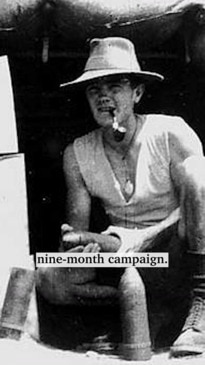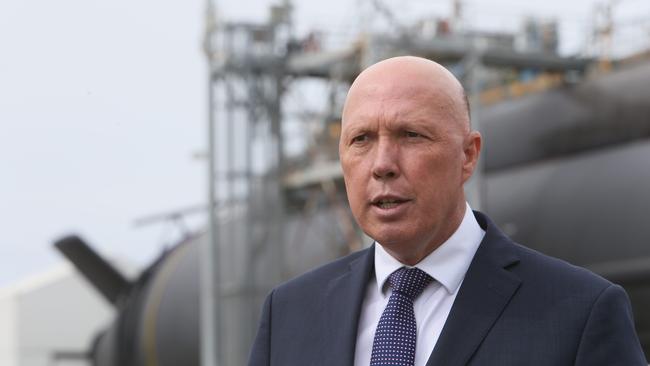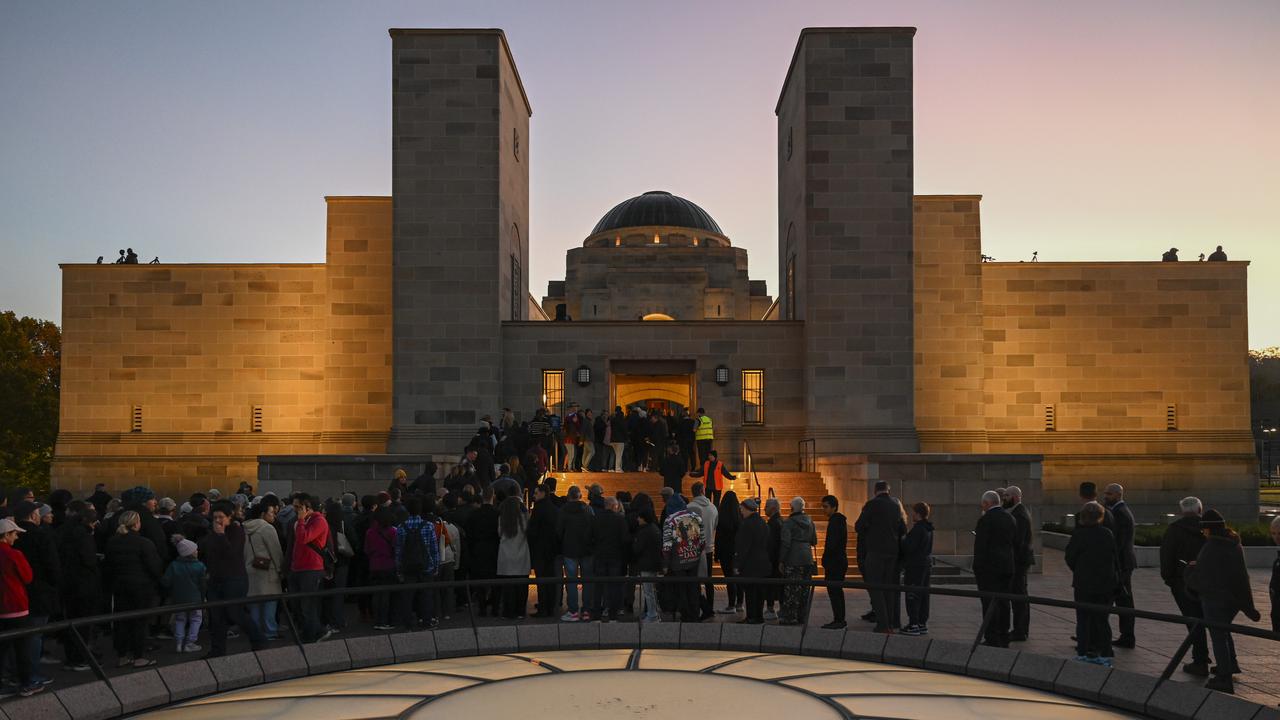Anthony Albanese and Peter Dutton reflect on the meaning of Anzac Day
Anthony Albanese and Peter Dutton have ditched election rhetoric and political jargon as they reveal their personal thoughts on what Anzac Day means to them. Read their letters.

National
Don't miss out on the headlines from National. Followed categories will be added to My News.
Anzac Day is special to all Australians. Prime Minister Anthony Albanese and Opposition Leader Peter Dutton reflect on what it means to them.
ANTHONY ALBANESE

Anzac Day is at the very heart of the Australian calendar, lifting us up in a shared act of remembrance and reflection that underlines who we are as a people.
Every year we come together in the early morning, an act of respect that invites us to imagine those first Anzacs climbing into their boats in the pre-dawn darkness. We gather around cenotaphs, and later we line our streets to watch parades.
We honour generations of sacrifice. We honour all who have served in our name and all who serve now.
It is a day for solemnity, but also a day to be thankful. And it is a day when we renew our vow to keep the flame of memory burning so brightly that its glow touches the next generation and the generation after that.
As we reflect on all we have become as a nation, we remember with gratitude every Australian whose sacrifice has made it possible. We think of every place across the world made hallow by our fallen.
On Anzac Day, we try to hear their voices and picture their faces. We try to imagine streets still ringing with their footsteps and their laughter before war took them away. Because as much as war is made up of numbers and dates and statistics, it is ultimately a story of human beings – and the families and mates and communities they left behind.
Every death was its own universe of devastation, and we see it mapped out across the world in an atlas of pride and grief in tombstone inscriptions from loved ones.
And as we remember those who never came home, we think of the veterans who did but could never fully leave the battle behind.
Yet Anzac Day also prompts us to appreciate the extraordinary difference Australians keep making in the world.

Last year I had the privilege of joining Papua New Guinea’s Prime Minister James Marape to walk a section of the Kokoda Track to Isurava.
And as we spoke at the Anzac Day Dawn Service there, I thought of the Australians who had fought in battle – and the many who had fallen – all around where we were gathered.
It was overwhelming trying to comprehend their courage, desperation and determination, as well as the strength of the friendship they formed with the people of PNG. Together, in the depths of the greatest darkness, they found light.
One memory I will always carry from that morning was the emotion in the air.
It was a reassuring sign that Anzac Day’s significance is not being softened by the passage of time, but still stands tall as a reminder to all of us of what truly matters.
So once again, as we gather in the early darkness, we will give thanks that in war, Australians have given us all the gift of a brighter dawn.
And together we will say one of the simplest but most powerful of sentences we have: Lest we forget.
Anthony Albanese is the Prime Minister of Australia
PETER DUTTON
Anzac Day is one of the most significant, solemn and sacred days on our national calendar. It’s a day to honour all Australians who have served, suffered and sacrificed in wars and military operations on behalf of our nation.
The commemoration of Anzac Day occurs at the individual, community and national levels.
And there are multiple layers of meaning behind our commemoration.

The first layer of meaning of Anzac Day is acknowledging the sacrifice of Australians.
Our memorials across the country – small and humble, large and iconic – pay tribute to the more than 103,000 Australians who made the ultimate sacrifice for our nation.
Behind every name on an honour roll, memorial or grave is a person. Behind each person is a story. Behind each story is a family.
By learning about the person, the story and the family behind a name – especially through diary entries, letters penned home and family tributes in newspapers – we appreciate the magnitude of sacrifice and loss. Our soldiers, sailors and airmen left behind loved ones, livelihoods and lives of aspiration.
There was valour in every act of service. But there was tragedy too – in every life lost quickly or in agony on the field of battle. And in those who survived the hell of war only to return home to live with the hell of wounds received in body and mind.
When we appreciate this sacrifice, we understand the second layer of meaning of Anzac Day – gratitude.

Our soldiers, sailors and airmen risked all in the service of a greater good: to fight tyranny and evil; to defend freedom and homeland.
The privileges, protections, liberties and opportunities we have today exist not because they are a natural occurrence. Rather, because they were fought for, and defended. Every Australian today is a beneficiary of the collective service and sacrifice of our men and women in uniform.
When we have gratitude, we understand the third layer of meaning of Anzac Day – responsibility.
We are the custodians of the considerable legacy of Australian service and sacrifice.
Those before us experienced the horror of war to restore peace. Whereas it’s our duty to preserve peace and prevent catastrophic war. In that duty – and in precarious times – may we never waver in effort, energy and endeavour, spurred on by the service, sacrifice and souls of those we commemorate.
When we appreciate this responsibility, we understand the fourth layer of meaning of Anzac Day – national self-confidence.
In remembering our fallen, we bridge the gap between the foreign past and the familiar present.
We quickly recognise that those remarkable individuals who we commemorate on Anzac Day were, like us, ordinary Australians.
What made them remarkable was that they did the extraordinary despite being ordinary – answering the times and circumstances in which they found themselves.
Anzac Day holds us to the mark.
We remember our fallen, so we don’t forget who we are.
Peter Dutton is the Federal Opposition Leader
More Coverage
Originally published as Anthony Albanese and Peter Dutton reflect on the meaning of Anzac Day





